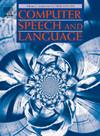Exploiting spatial information and target speaker phoneme loss for multichannel directional speech enhancement and recognition
IF 3.4
3区 计算机科学
Q2 COMPUTER SCIENCE, ARTIFICIAL INTELLIGENCE
引用次数: 0
Abstract
Directional speech extraction catches increasing attention recently in multichannel speech separation, as it focuses solely on extracting the target speech to make real-time communication (RTC) and automatic speech recognition (ASR) more productive. This work investigates a real-time multichannel neural framework for directional speech enhancement and recognition by exploiting the explicit spatial information derived from the microphone array geometry, and the implicit spatial information learned from a dedicated narrow-band network. In addition to the traditional signal-based loss functions, we further introduce a loss inspired by the ASR phoneme mismatch to guide the framework training towards the distortion-less target speech signals. Experimental results with simulated datasets show that the proposed framework significantly improves the speech quality of the target speaker locating at the specific direction in noisy and reverberant environments with interfering speakers. The improved ASR results with the real-recorded dataset of live conversations from the CHiME8 MMCSG Challenge further verify the effectiveness of our system for practical applications.
利用空间信息和目标说话人音素损失进行多通道定向语音增强和识别
定向语音提取在多通道语音分离中越来越受到关注,因为定向语音提取只关注目标语音的提取,从而提高实时通信和自动语音识别的效率。本研究通过利用来自麦克风阵列几何的显式空间信息和从专用窄带网络学习的隐式空间信息,研究了用于定向语音增强和识别的实时多通道神经框架。除了传统的基于信号的损失函数,我们进一步引入了由ASR音素不匹配启发的损失函数,以指导框架训练向无失真的目标语音信号方向发展。仿真数据集的实验结果表明,在有干扰扬声器的噪声和混响环境中,该框架显著提高了定位在特定方向的目标扬声器的语音质量。基于CHiME8 MMCSG挑战赛现场对话实录数据集的改进ASR结果进一步验证了该系统在实际应用中的有效性。
本文章由计算机程序翻译,如有差异,请以英文原文为准。
求助全文
约1分钟内获得全文
求助全文
来源期刊

Computer Speech and Language
工程技术-计算机:人工智能
CiteScore
11.30
自引率
4.70%
发文量
80
审稿时长
22.9 weeks
期刊介绍:
Computer Speech & Language publishes reports of original research related to the recognition, understanding, production, coding and mining of speech and language.
The speech and language sciences have a long history, but it is only relatively recently that large-scale implementation of and experimentation with complex models of speech and language processing has become feasible. Such research is often carried out somewhat separately by practitioners of artificial intelligence, computer science, electronic engineering, information retrieval, linguistics, phonetics, or psychology.
 求助内容:
求助内容: 应助结果提醒方式:
应助结果提醒方式:


